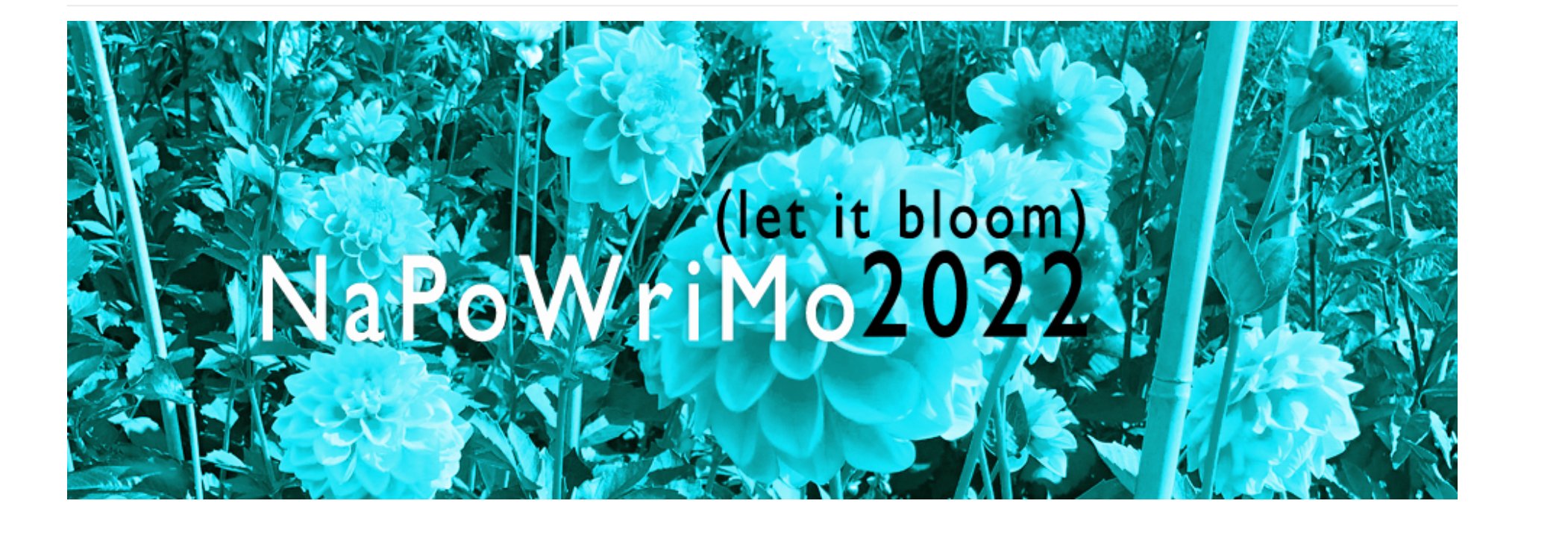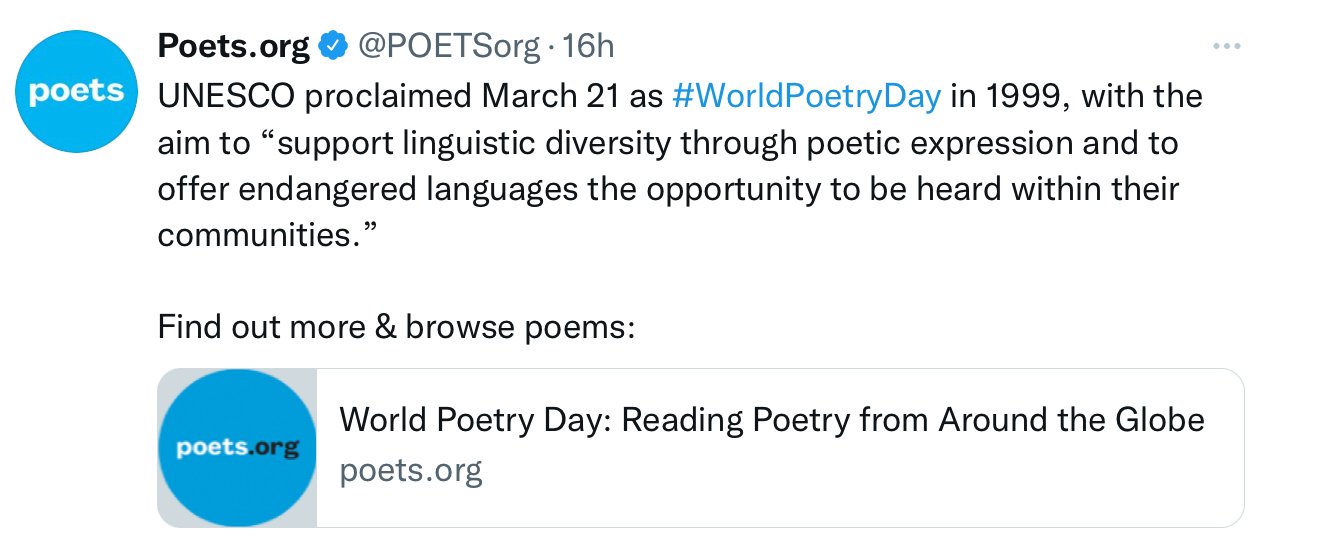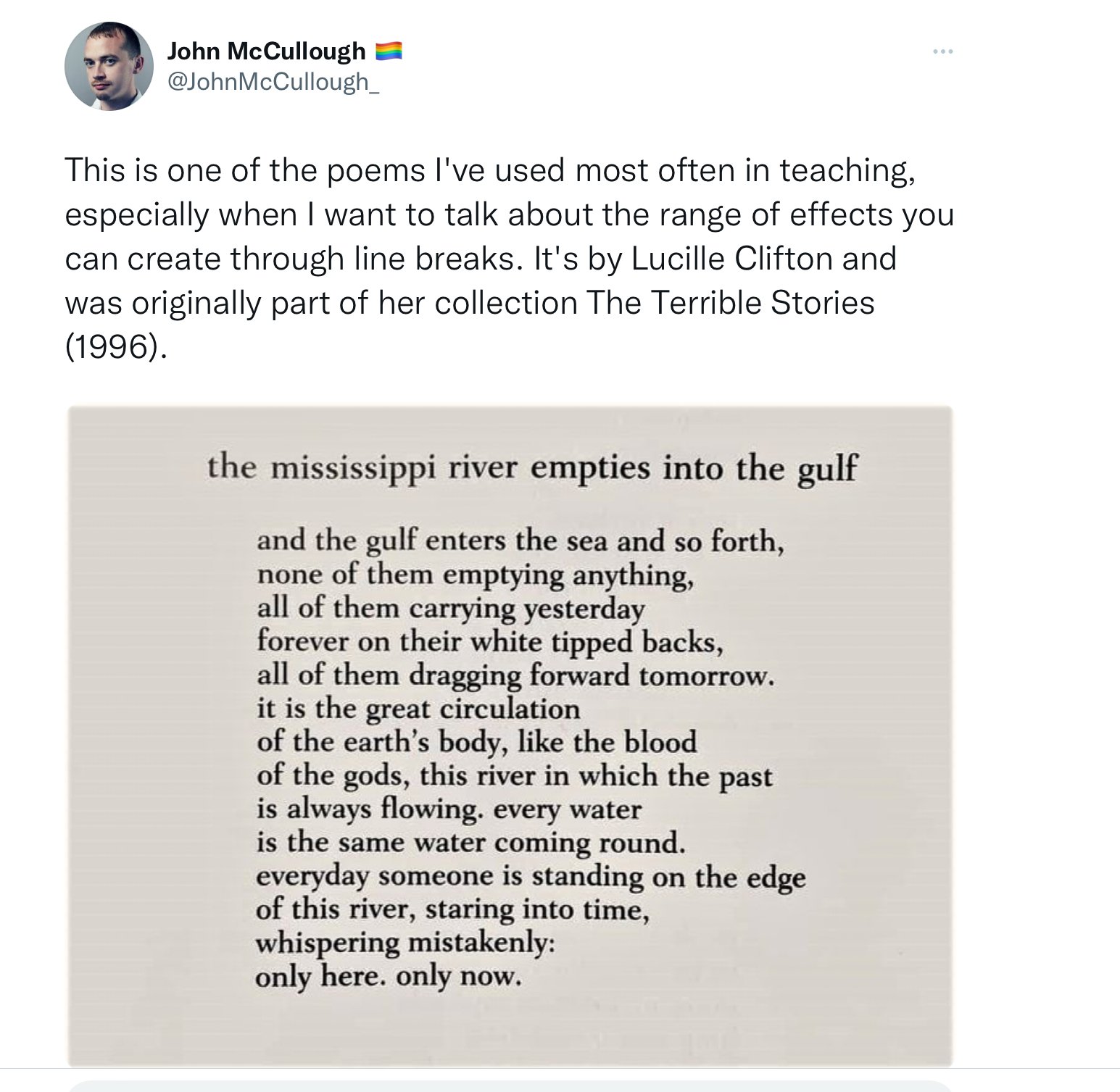Something that stood out for me was how the interplay of the last word of the lines—“yesterday” followed by “backs” and then “tomorrow,” the logical connection of “circulation” and “blood,” but the contrast between “round” and “edge” and ending on “now” after “mistakenly.”
Those ending words themselves are a story (carried along on the lines of course but could themselves create meaning. For the first prompt, write a poem from the last word from each line and of the title but in reverse order or in a different sequence from the poem: “now,” “mistakenly,” “time,” “edge,” “round,” “water,” “past,” “blood,” “circulation,” “tomorrow,” “backs,” “yesterday,” “anything,” “forth,” and “gulf.”
What I also loved about the poem (ok, one of many things) is the motion. I felt the rocking back and forth in that initial “so forth,” the forward momentum and then that abrupt stop at “edge” before falling into the next line and finally ending on the swaying “only here. only now.”
Of course, John McCullough explains this so much better than I could:









































